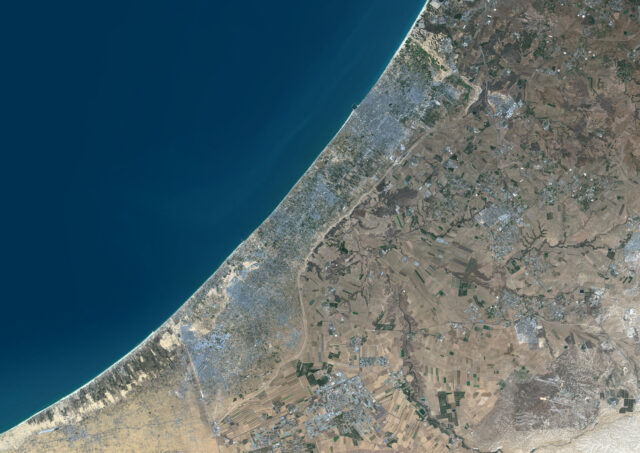Editor’s note: Amit Segal is Chief Political Correspondent for N12News. You can find his column “It’s Noon in Israel” at https://www.amitsegal.net/ and his X posting: https://x.com/amitsegal. This is as-it-happens news; things can – and likely will – change. But Segal’s breakdown will remain important.
Israel has decided to occupy the entire Gaza Strip, according to a senior official in Benjamin Netanyahu’s office.
There’s a lot to explore here, including whether this is a mere threat, why it was announced now, and the historical ramifications it may have for IDF chief Eyal Zamir.
Let’s break it all down.
First, a caveat: when it comes to such major declarations, you always need to be cautious until the decision is final and IDF forces actually move. Nevertheless, this is what the official said last night: “We’re going to occupy the strip. The decision has been made. Hamas won’t release more hostages without total surrender, and we won’t surrender. If we don’t act now, the hostages will starve to death and Gaza will remain under Hamas’ control.”
Why the sudden drastic decision? For months, Israel was at a crossroads, and if we’re being honest, it was achieving neither victory over Hamas nor the hostages’ release. And with negotiations collapsing due to Hamas’ unrealistic demands, the decision to occupy the entire strip will be brought this week for the security cabinet’s approval, according to the official.
As for its implications for IDF operations in Gaza, if this goes ahead, the military will enter areas where it previously avoided, such as camps in central Gaza and Gaza City. More importantly: it means moving to defeat Hamas even in areas where hostages are held.
You may be wondering: is Israel definitely going to operate where there are hostages? All I can tell you is that I’ve quoted the official who said Israel will do just that. Readers will likely disagree over whether this is a mere negotiation tactic to pressure Hamas or if it’s the real deal.
But the bottom line is this: if the official is correct, it means that Israel is planning something the likes of which we haven’t seen in the past 22 months.
We still have other lingering questions, however. First: why would Israel announce to the enemy its plans in advance? As mentioned above, it may be a final attempt to pressure Hamas into agreeing to a deal.
But there’s another operational reason. Gaza has always been conquered the same way, since the days of King David, through to Australia’s campaign in WWI, the 1967 Six-Day-War, and today. And so, unlike with Hezbollah and Iran, Israel cannot surprise Hamas in a takeover of the strip, and as a result, it’s not making any operational sacrifices by announcing its intentions beforehand.
Now, for IDF Chief of Staff Eyal Zamir. As part of their briefing to journalists, the official close to Netanyahu did not mince their words. “There will be operations even in areas where hostages are being held. If the chief of staff doesn’t agree, he should resign,” they said.
The official was not threatening Zamir for no reason. There have already been multiple reports—going back to last week—that Zamir is considering resigning if he is ordered to reoccupy the entire strip. Indeed, he doesn’t want a full reoccupation of Gaza—he wants a deal. And as these reports suggest, he is involved in negotiations over either a comprehensive deal to end the war or an alternative plan to encircle Gaza City without conquering it.
Interestingly, Zamir is yet to deny the reports. And while I don’t believe he’ll actually resign, it’s in his best interests to not deny the rumors. After all, in Israel, the Chief of Staff is one of the few figures who enjoys broad public support.
But if he does quit, it would mark only the second time in Israel’s history—and the first in over 70 years—that a Chief of Staff resigns in protest over a government decision.
The last IDF chief to quit was Yigal Yadin, who resigned in December 1952 over disagreements with then-Prime Minister David Ben-Gurion about cuts to the military budget.
Yadin, however, had served in the position since 1949. Zamir entered the role a mere five months ago—and he’s unlikely to be excited by the prospect of holding the shortest stint of IDF Chief of Staff in the country’s history.


